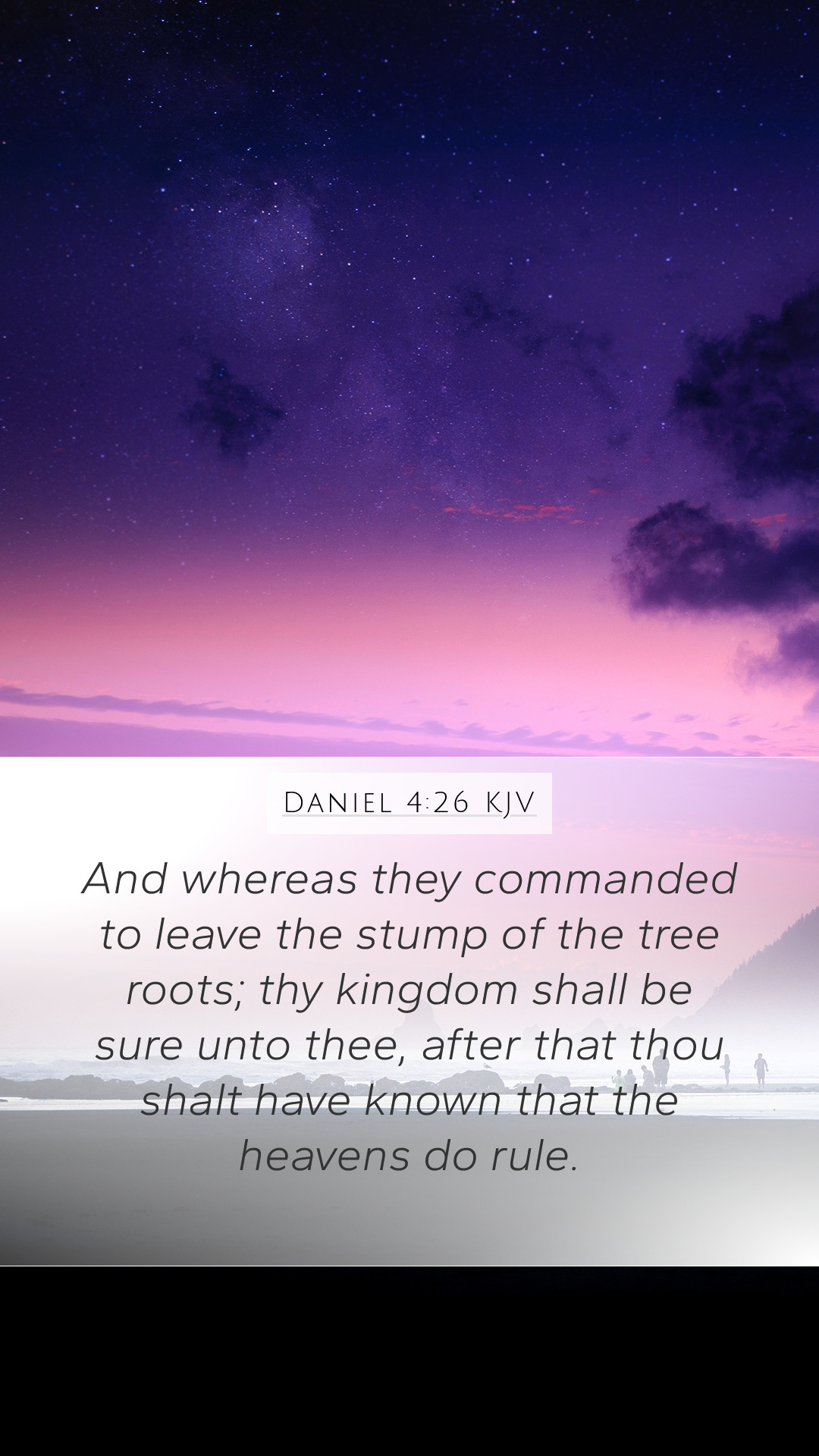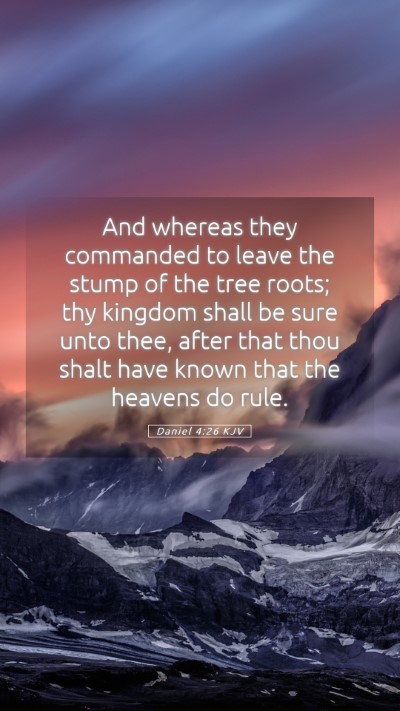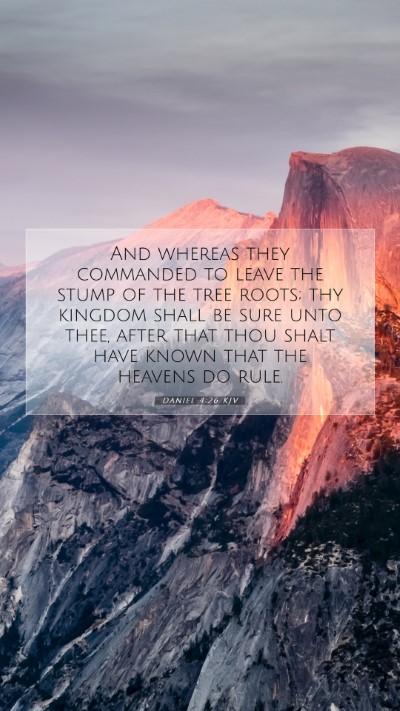Understanding Daniel 4:26
Daniel 4:26 presents a significant verse within the broader narrative of the Book of Daniel, particularly in relation to the theme of divine sovereignty and the humbling of prideful rulers. This verse reflects God's dominion over earthly kingdoms and serves as an essential commentary on the nature of divine judgment and grace.
Verse Text
Daniel 4:26: "And whereas they commanded to leave the stump of the tree roots; thy kingdom shall be sure unto thee, after that thou shalt have known that the heavens do rule."
Bible Verse Meanings
This verse encapsulates the pivotal moment in King Nebuchadnezzar's story, emphasizing the themes of:
- Divine Rule: The idea that God is ultimately in control of all earthly matters.
- Restoration: Despite the impending judgment, there is a promise of restoration for the king once he recognizes God's authority.
Bible Verse Interpretations
According to Matthew Henry's commentary, this part of the passage illustrates that even the mightiest of kings must acknowledge God's overarching power. The 'stump of the tree' symbolizes a remnant of Nebuchadnezzar's kingdom spared from total destruction, indicating that grace is available even in judgment.
Albert Barnes interprets the 'stump' as a token of mercy. Although King Nebuchadnezzar will face consequences for his pride, he will not lose everything. This reinforces the notion that God often purges His people while still giving them hope for future restoration.
Adam Clarke emphasizes the importance of recognizing the 'heavens do rule'. This acknowledgment is crucial for both individuals and nations, as it reflects humility and a return to a rightful understanding of God's power and authority.
Bible Study Insights
This verse serves as a critical reminder in our Bible study groups and online Bible study sessions. It calls for deep reflection upon:
- The impact of pride on spiritual discernment.
- The necessity of repentance for true restoration.
Historical Context of Daniel 4:26
The context of this verse lies within the broader narrative of Nebuchadnezzar's dream about a mighty tree that is ultimately cut down. This dream allegorically represents his kingdom and his own pride. Understanding this historical backdrop is essential for scripture analysis and Biblical exegesis.
Bible Verse Explanations
The 'stump' signifies that while the destruction may be severe, it does not mean complete annihilation. Rather, it serves as a metaphor for what can still grow back, encouraging readers to reflect on personal growth after humility and recognition of God’s sovereignty.
Application of Bible Verse to Daily Life
In our daily lives, this verse teaches the significance of humility and tracking the events where we recognize God's hand in our circumstances. By admitting that 'the heavens do rule', believers can cultivate a deeper understanding of their roles in the kingdom of God.
Cross References
This verse can be related to:
- Proverbs 16:18: "Pride goes before destruction, and a haughty spirit before a fall."
- Isaiah 40:23: "He brings princes to nothing, and makes the rulers of the earth as emptiness."
- James 4:6: "But he gives more grace. Therefore it says, 'God opposes the proud, but gives grace to the humble.'
Conclusion
Daniel 4:26 serves as a powerful reminder of God’s sovereignty and the cycle of humility and restoration. By engaging in Bible study lessons and utilizing various Bible study tools, believers can grow in their understanding of Scripture and reflect on the significance of this verse in their spiritual journeys.


